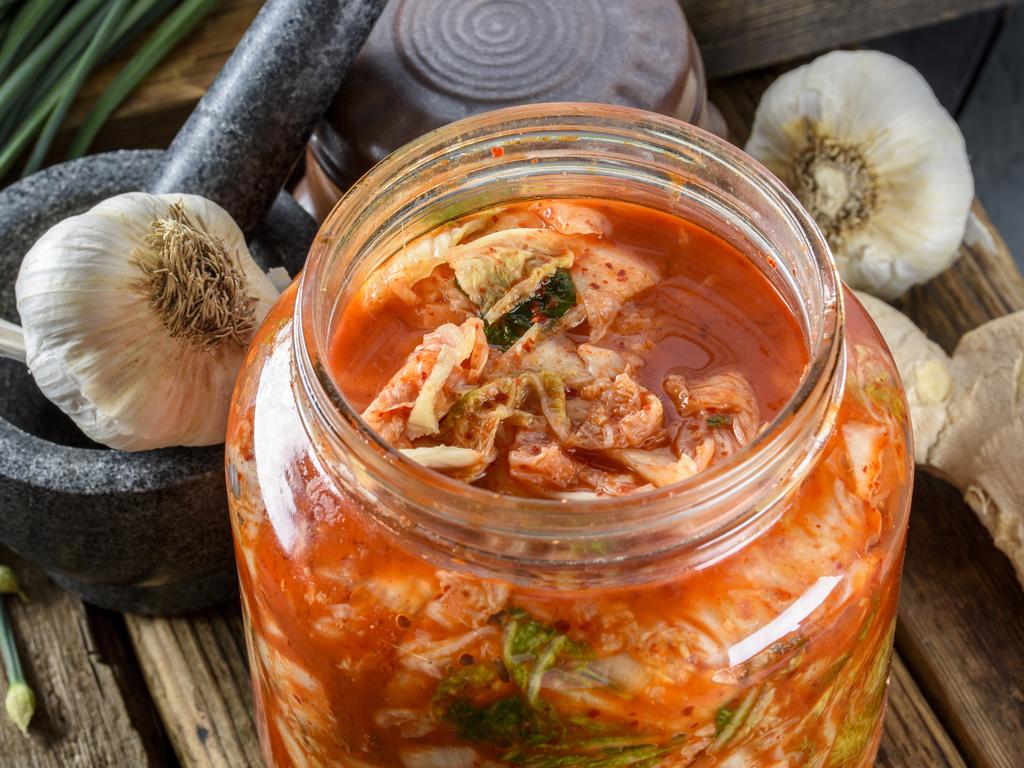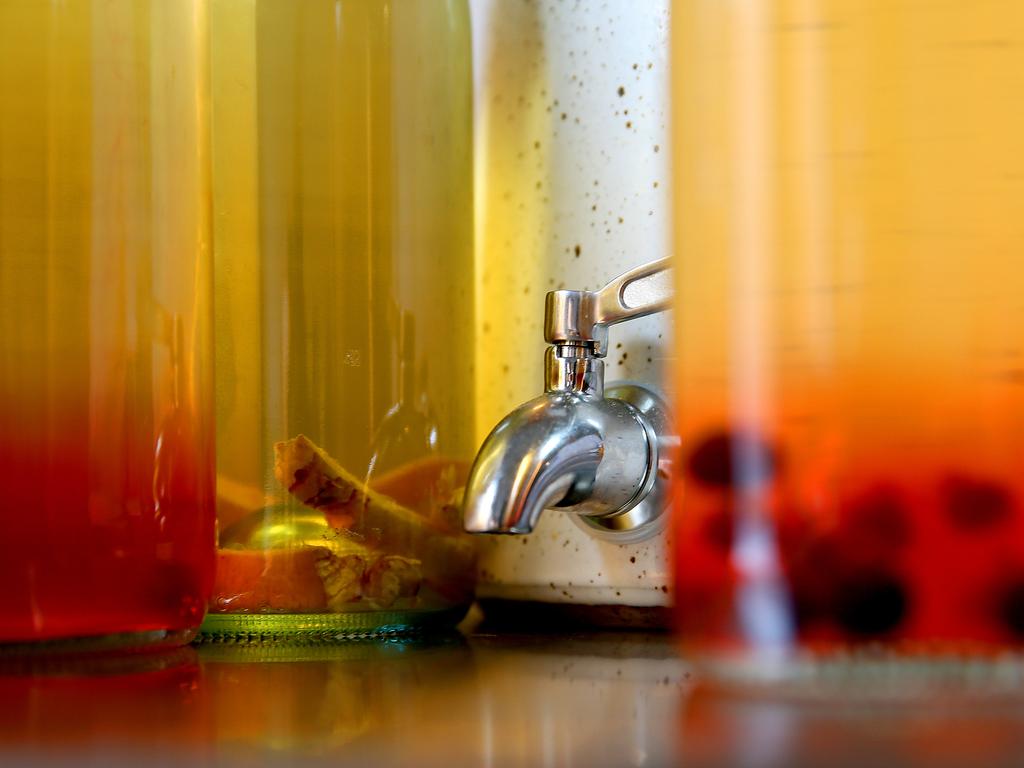Dietitian reveals two surprise grocery items that can cure a hangover
The ultimate cure to your hangover could be hiding in the grocery aisle, a dietitian has revealed.

The ultimate cure to your hangover could be hiding in the grocery aisle.
Kombucha and kimchi are the key to getting rid of the pounding headaches and churning stomach after a night on the town, an expert has said.
As reported by the New York Post, the fermented products promote better gut health due to their probiotic content.
“We know the liver is responsible for alcohol metabolism, so looking after your gut health and liver can have a positive impact on alcohol metabolism,” registered dietitian Lucy Kerrison told MailOnline.
“Maintaining good gut health can strengthen your intestinal barrier function, so it is less affected by alcohol, a known gut irritant which affect intestinal motility, permeability and absorption of nutrients.”

It’s tempting to reach for salty, greasy, carbohydrate-dense snacks when suffering from a hangover due to the dehydrating properties of alcohol, she continued.
Salt, then, helps with water retention.
“Fermented foods which are higher in salt, such as kimchi and sauerkraut, can be helpful,” she explained.
“They also contain live bacteria which can have a positive impact on our gut microbiome, something which can be damaged with excess alcohol consumption.”
But a happy GI tract isn’t the only benefit of kombucha – the fermented beverage is also believed to help control blood sugar and soothe symptoms of irritable bowel syndrome.


However, the gut-friendly food won’t prevent a hangover if consumed in advance.
“Most of the alcohol will be absorbed in the upper gut, so unless you drink excessively very little will get to the colon where most of the bacteria are,” registered dietitian Dr Duane Mellor said, advising that the best hangover cure was to curb the alcohol consumption.
Not only will excessive drinking leave boozers with a wicked migraine and debilitating nausea the next morning, but alcohol has also been linked to an array of health consequences, such as liver disease and cancer.
This article originally appeared on the New York Post and was reproduced with permission





